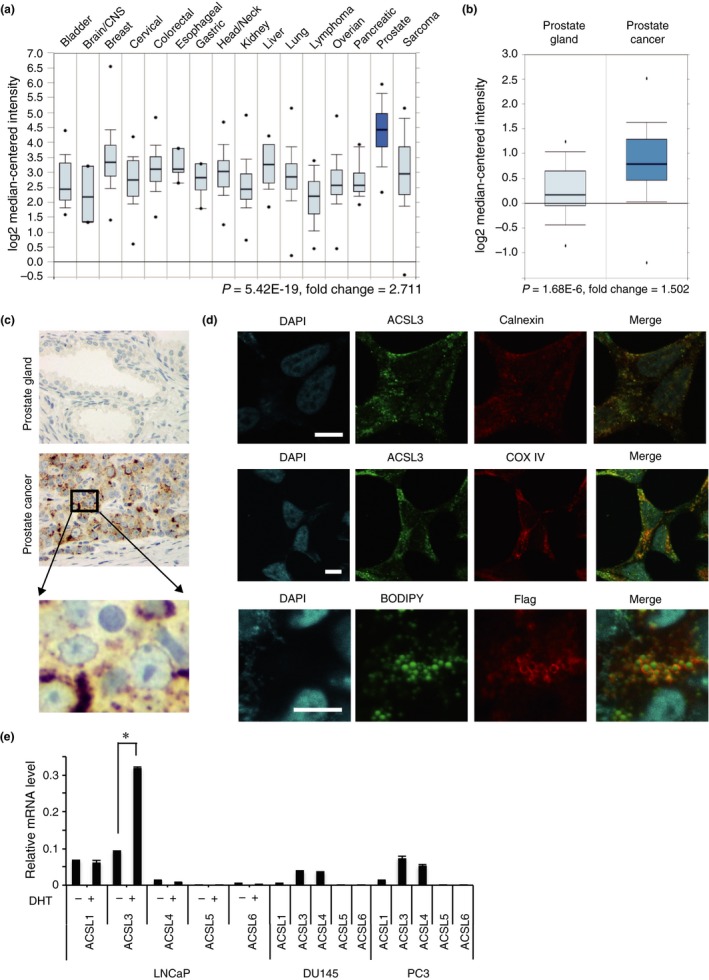Figure 1.

Long‐chain acyl‐coenzyme A (CoA) synthetase 3 (ACSL3) is overexpressed in prostate cancer. (a) ACSL3 mRNA expression levels in various organs were obtained from Bittner Multi‐cancer study in the Oncomine database (1911 samples). Statistical analysis was performed by t‐test (P = 5.42E‐19, fold‐change = 2.711). (b) ACSL3 mRNA levels in the prostate gland (n = 41) and in prostate cancer (n = 62) were obtained from the study of Lapointe in Oncomine. Statistical analysis was performed by t‐test (P = 1.68E‐6, fold‐change = 1.502). (c) Representative picture of ACSL3 immunostaining in the prostate gland (upper panel) and in prostate cancer (middle panel). Higher magnification of the indicated area focused on an ACSL3 immunostaining (lower panel). (d) Upper and middle panels: LNCaP cells were fixed and treated with anti‐ACSL3 and anti‐calnexin (endoplasmic reticulum marker; upper panels), or with anti‐ACSL3 and anti‐COX 4 (mitochondrial marker; middle panels). Lower panels: LNCaP‐ACSL3 cells were treated with anti‐FLAG antibody and stained with BODIPY 493/503 for lipids detection (green, BODIPY 493/503; red, FLAG; and blue, DAPI). Nuclei were stained by DAPI. Immunofluorescence staining was analyzed by confocal microscopy. Scale bar, 10 μm. (e) mRNA levels of endogenous ACSL isozymes quantified by real‐time PCR in LNCaP cells in charcoal‐stripped FBS with or without dihydrotestosterone, and in DU145 and PC3 cells in regular medium. The data were normalized to that of β‐actin, which was used as an internal control. The asterisk (*) indicates P < 0.05.
